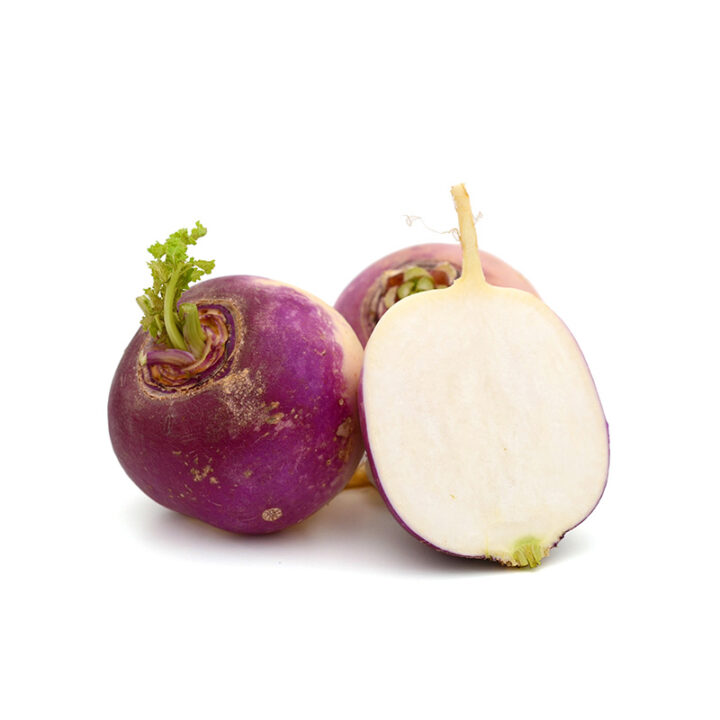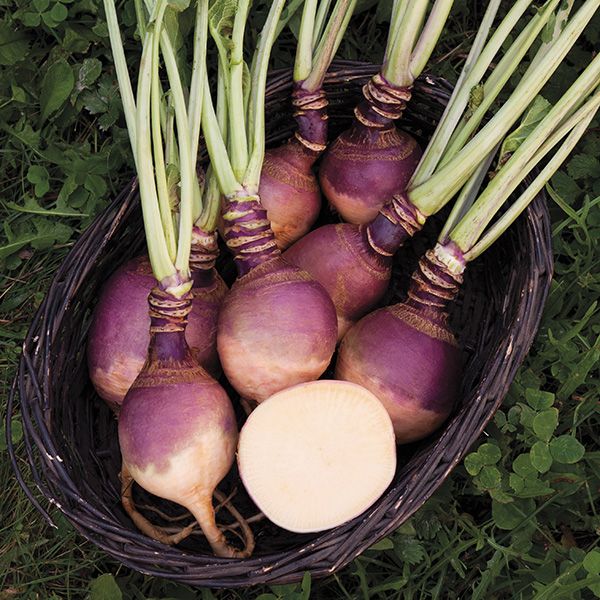Rutabaga
is a root vegetable that is closely related to turnips. It has a sweet and slightly earthy flavor. Here’s the information you requested:
Rutabaga vs Turnip:
Rutabaga and turnip are similar in appearance, but there are some differences between them. Rutabaga is larger and has a yellow or tan skin with a purple top, while turnips are smaller and have a white or purple skin. Rutabagas have a slightly sweeter taste compared to turnips, which tend to have a more peppery flavor.
Rutabaga meaning in Urdu:1
Rutabaga is not commonly found in Urdu-speaking regions, so there isn’t a specific term for it in Urdu.
Rutabaga origin:
Rutabaga is believed to have originated from a cross between wild cabbage and turnip, and it was first cultivated in Scandinavia.
Rutabaga recipes:
Rutabagas can be used in various recipes, such as roasted rutabaga, mashed rutabaga, rutabaga fries, rutabaga soup, and rutabaga gratin. They can also be added to stews and casseroles for added flavor and texture.
Rutabaga in Spanish:
Rutabaga is known as “nabo sueco” in Spanish.

Rutabaga carbs:
Rutabagas are relatively low in carbohydrates. On average, they contain about 8-10 grams of carbs per 100 grams.
Rutabaga calories:
Rutabagas are relatively low in calories. They contain about 35-40 calories per 100 grams.
Rutabaga leaves:
The leaves of rutabaga are edible, similar to turnip greens. They can be cooked and consumed, but they are often less commonly used compared to the root.
Rutabaga side effects:
Rutabagas are generally safe to consume, but excessive intake may cause digestive discomfort for some individuals. Additionally, some people may be allergic to rutabagas or experience an intolerance to them. If you have any concerns or specific health conditions, it’s best to consult a healthcare professional.
Is rutabaga good for you?
Rutabagas are nutritious and offer various health benefits. They are a good source of fiber, vitamins C and E, potassium, and antioxidants. They can contribute to a healthy diet when consumed as part of a balanced meal plan.
Is rutabaga good for weight loss?
Rutabagas are relatively low in calories and high in fiber, making them a good choice for weight loss. They can help promote feelings of fullness and support a calorie-controlled diet.
Is rutabaga good for kidneys?
Rutabagas are not specifically known to have benefits or negative effects on kidney health. However, they are generally considered a healthy vegetable that can be part of a balanced diet. If you have specific kidney-related concerns, it’s best to consult a healthcare professional or a registered dietitian.
Rutabaga taste:
Rutabagas have a sweet and slightly earthy flavor. Some describe their taste as a cross between a turnip and a cabbage.
Rutabaga soup:
Rutabaga soup is a popular dish made by cooking rutabagas with other vegetables, broth, and seasonings. It can be enjoyed as a hearty and flavorful soup option.
Rutabaga fries:
Rutabaga fries are a healthier alternative to traditional potato fries. They are made by cutting rutabagas into thin strips, tossing them in oil and seasoning, and baking or frying them until crispy.
Rutabaga advantages and disadvantages:
Rutabagas are a versatile and nutritious vegetable. Advantages include their flavor, versatility in cooking, and nutrient content. Disadvantages may include the potential for digestive discomfort in some individuals and their relatively higher carbohydrate content compared to some low-carb diets.
Rutabaga nutrition:
Rutabagas are a good source of dietary fiber, vitamin C, potassium, and antioxidants. They also contain smaller amounts of other vitamins and minerals, such as vitamin E, vitamin K, calcium, and magnesium.
Rutabaga benefits:
Rutabagas offer several health benefits due to their nutrient content. They provide antioxidants that help protect cells from damage, fiber for digestive health, and various vitamins and minerals for overall well-being.
Rutabaga benefits for the body:
Rutabagas can support overall health by providing essential nutrients, supporting digestion, promoting a healthy immune system, and contributing to healthy skin and eyesight.
I hope this information helps!

